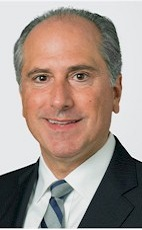
Google's continually evolving ecosystem presents both a challenge and an opportunity to business owners looking to maximize their impact and increase visualization on the web. Today, the algorithms behind Google are designed to make recommendations based on a user's intent rather than direct keyword matches, a trend observant hoteliers are taking advantage of. This article will outline the cornerstones of a strong search engine optimization plan, how business owners can adopt an intent-based search process, and why these strategies are integral to your future success. READ MORE



















